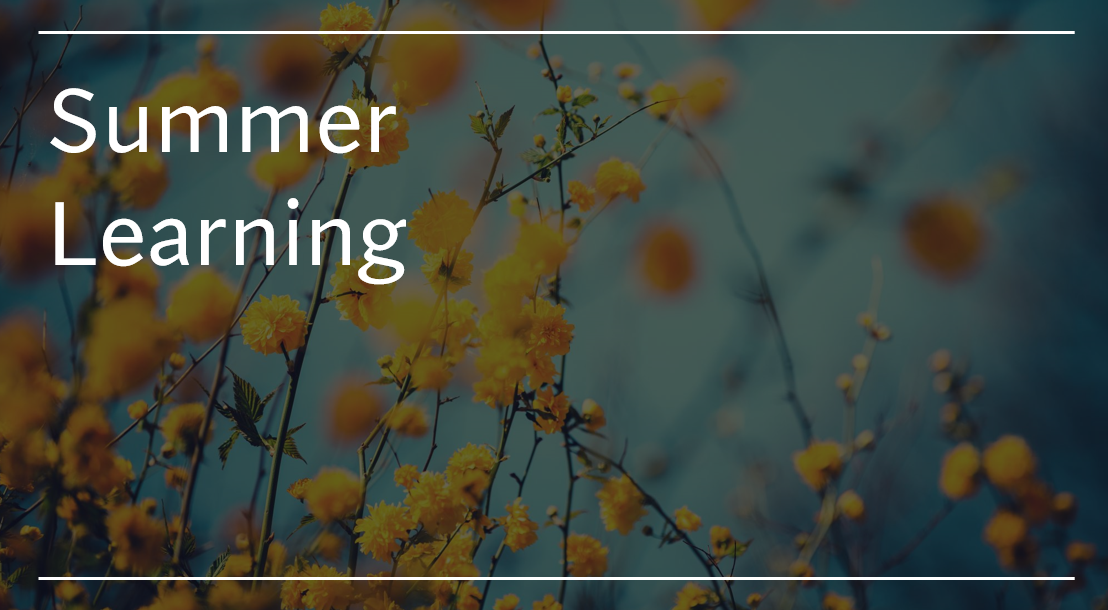What is summer learning? It is simply supporting and creating learning experiences at home during the summer to support and maintain the learning accomplished during the school year. Wow! That’s a lot, isn’t it? Sadly, all of that is actually easier said than accomplished.
Did you know that students will lose between 17% and 34% of the knowledge and learning gained in the school year during the summer break (Atteberry & McEachin)? This is also referred to as the summer slide. This summer slide then necessitates starting the school year off with a series of reviews. Some classes and teachers share that they have had to review the prior school year curriculum for up to an entire month!
It does not need to be this way!
However, summer learning falls entirely on the parents. There is simply no other way unless you have an older student who is highly motivated to learn, capable of setting personal learning goals and following through.
Where to Start:
First in looking at your summer, be sure to reach out to your child’s teacher (or teachers). Ask your teachers what you can do to support your child and to maintain their learning. All teachers have a list of things the student can do. They may have workbooks. Review sheets. Extra handouts. Links to materials.
Next, contact the next year’s teacher. Ask what you can do to prepare your student for the coming school year. This teacher will also have some ideas.
Be sure to also look online. What are the milestones for your child and their age? What should they know? What are the reading recommendations?
Go to your local library. Ask the librarian for support and information. Your library will have resources for you.
Try workbooks and activity books for younger children. These are excellent for building and maintaining skills.
Create goals with your child. Be sure to involve them in the learning process. Set up learning contracts and rewards. (One year, our family set up a family reading goal. We drew a pathway on a posterboard that looked a lot like Candyland with ice cream cones, burgers, field trips, picnics and more! As they read, they colored in a square. It was incredibly fun! The end goal was a trip. It was fun to read together, but the most fun came from creating the poster board!)
What is summer learning? It is simply supporting and creating learning experiences at home during the summer to support and maintain the learning accomplished during the school year. Wow! That’s a lot, isn’t it? Sadly, all of that is actually easier said than accomplished.
What is summer learning? It is simply supporting and creating learning experiences at home during the summer to support and maintain the learning accomplished during the school year. Wow! That’s a lot, isn’t it? Sadly, all of that is actually easier said than accomplished.
Be sure to recognize all attempts. If your child did some of that fourth-grade workbook, congratulate them and reward them. Do not think that it has to be completed to recognize their efforts. Encourage them to jump around in a workbook. It doesn’t have to be done sequentially.
Look at reading programs. Most libraries will offer summer reading contests with a reward system.
Also look out at your community. Our local Dairy Queen offered a free small cone to every ten books read. (My kids did a lot of reading that summer!)
If your community or library does not offer summer rewards, look online or create your own.
Make It Fun:
Don’t make summer learning tedious! I recall a parent of one of my students complaining how she had to fight her student to do any learning during the summer. When asking more questions, I learned she had an alarm set and all of her children were forced to sit at the table for ‘x’ amount of time to study. Yuck! Who wouldn’t find that tedious and just horrible?
There are so many fun things to do instead of sitting at a table. We spent one summer going through a book with 100 fun science experiments. To this day, my adult children talk about some of those experiments. (Like adding Mentos to Diet Coke. Or the neighbor teenager who wondered what would happen if he were to add two Mentos to a two-liter Diet Coke. -The answer, in case you’re wondering, is that it spouted into his face. The young man took a Diet Coke shower.)
We learned about physics (thrust, lift, force) and had a paper airplane contest. What about building rockets and shooting them off in a park?
Summer learning is fun. Yes! I get it. You’re a tired, working parent. So am I! Or so was I! But when learning is made to be fun, it becomes more a delight and reward instead of drudgery or tedious. Learning is fun!
Sources:
Atteberry, A. & McEachin, A. (2020). School’s Out: The Role of Summers in Understanding Achievement Disparities. American Educational Research Journal, 239-282.



Comments are closed